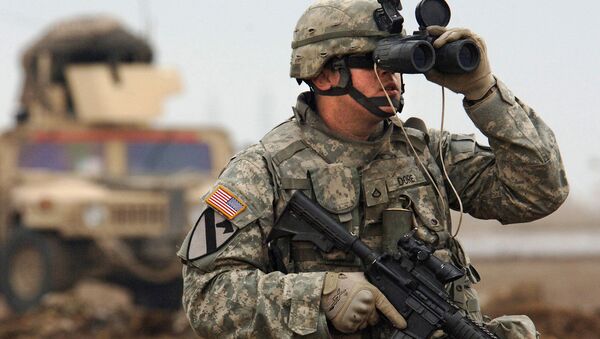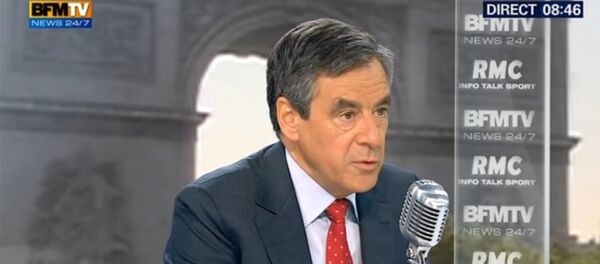Since the end of the Second World War Americans have found themselves trapped in a vicious cycle of warmongering, fed by constant fear of an external threat, noted Gregory A. Daddis, a US Army colonel and a professor of history at the United States Military Academy.
"The 2015 National Security Strategy, published in February, offers a case in point. While acknowledging America's growing economic strength and the benefits of moving beyond the large ground wars in Iraq and Afghanistan, the document stresses the 'risks of an insecure world.' Despite its global power and reach, the United States, we are told, faces a 'persistent risk of attacks,'" Gregory A. Daddis emphasized.
Washington still persists in creating the atmosphere of inevitable doom, referring to the substantial threat purportedly posed by Russia, or China, or by omnipresent terrorists.
The US colonel called attention to the sheer hypocrisy of those who insisted that the US' interventions were meant to promote "freedom" and "democracy." According to the expert, explanations of the necessity of war have always been aimed at downplaying "the economic aspects of global engagement."
"Americans traditionally have been uncomfortable with the word "empire," even if its current form suggests securing economic access abroad rather than promoting traditional colonialism… War meant liberty triumphing over evil rather than promoting the nation's economic interests abroad," he emphasized.
Maintaining Washington's supremacy at all costs has made Americans "suspicious" of any world power or entity that might undermine the US' "self-affirmed global position," feeding its addiction to war, Colonel Daddis elaborated.
"In reality, we don't want peace. We're not just entranced by war. We have come to a point where we fear we can't live without it. War has become a means to deal with our fears, while our fears have become a justification for more war," the American colonel highlighted.
However, the time has come to reconsider this stance, the expert noted. US interventionism is only escalating military conflicts and is threatening the fragile global stability, stressed the colonel referring to a new potential US Middle East incursion and longstanding latent confrontation with China.
"After more than a decade of war, the time has come for us to move beyond our state of national insecurity. Paranoia does not equal preparedness," Daddis stressed.
"We need to stop conforming to the relentless militarization afflicting our national mental health. And, above all, we need to stop being so afraid," he concluded.





